Will China Throw BRICS At The Dollar?
Authored by Jame Gorries via The Epoch Times,
As the Trump administration’s America First policy continues to unfold, the globalist policies of the prior administration are rapidly disappearing.
To no one’s surprise, the America First policies include imposing tariffs on Chinese goods aimed at reducing the U.S. trade deficit with China and Europe, as well as broader policies prioritizing U.S. interests over international cooperation.
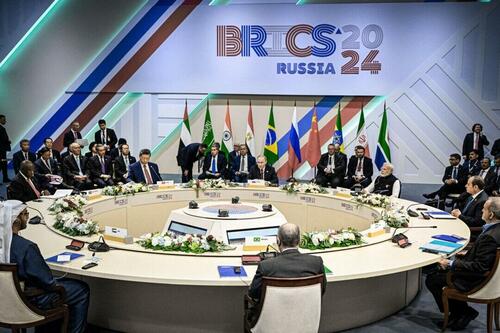
Trump’s Tariffs Trigger Trade War?
But that’s not the whole story. The administration’s high tariffs, specifically on Chinese imports, are not only meant to protect U.S. industries but are also intended to pressure China economically. By extension, as the Chinese economy continues to struggle, the Chinese Communist Party (CCP) will be under pressure at home.
Predictably, U.S. tariffs have led to retaliatory tariffs from China against American products. Initial actions by Beijing include levying 15 percent tariffs on imports of U.S. liquid natural gas (LNG) and coal, as well as 10 percent tariffs on oil, farm equipment, and certain automobiles.
Tension Escalation and BRICS
The immediate effect has been escalating tensions between the two nations across geopolitical and economic spectrums. If the trade war continues to ramp up, the friction between Washington and Beijing will likely increase, with potentially more provocative actions and responses to follow.
One specific response could be for China to find a quicker path toward a BRICS-based trading system. BRICS, which is an acronym for the first five participating countries—Brazil, Russia, India, China, and South Africa—was founded in 2009 and is currently considering an alternative currency that would be used primarily to replace the dollar for trading between member countries.
No actual BRICS currency yet exists.
Establishing a functioning BRICS-based trade bloc isn’t a new proposal; it’s been talked about for years or even decades. Avoiding U.S. financial dominance is the reason the BRICS nations came together in the first place. The idea has always been to insulate BRICS economies, which constitute 35 percent of global GDP, from U.S. financial pressures.
But skeptics point out that there’s no substitute for the dollar, at least not from Europe, Japan, or China. By some estimates, the U.S. dollar is used in 84.3 percent of international trade—compared to just 4.5 percent for the Chinese yuan.
BRICS: A Valid Challenge to the Dollar Dominance?
Still, the push for de-dollarization among BRICS nations has gained momentum in response to Washington’s weaponization of the dollar through sanctions and trade policies against nations it disagrees with. Russia’s invasion of Ukraine and Iran’s proxy wars against Israel are two prime examples of the United States imposing crippling sanctions and freezing the national assets of adversaries, but they’re not the only ones.
Now, with the Trump administration threatening the Chinese economy, the CCP views the need to launch a BRICS currency and trading system as “pressing.” They’re not alone. The other BRICS nations, especially Russia, are also very interested in forming a new currency to compete with the U.S. dollar and recently announced plans for a BRICS blockchain-based payment system.
However, achieving true currency diversification against the dollar won’t be easy. The dollar has been widely used since the end of World War II, and the entire global financial system is dollar-based. Furthermore, the dollar network is well-established and functions better than any other.
The dollar network includes the U.S. economy, which remains the biggest and most productive and innovative in the world; the U.S. financial markets; the banking and exchange system (SWIFT), which is the world’s largest, most reliable, and most liquid; and the U.S. legal system, which is the most reliable and transparent. Finally, the U.S. military remains the most lethal and effective enforcement agency on the planet.
In soft power terms, American culture has global recognition and appeal. Neither China’s nor Russia’s cultural appeal is anywhere close. Given these factors, no other country, or even 10 nations (the number of BRICS members today), can replace the dollar’s place and power in the world.
Can China Create a BRICS-Based Trading System?
How would China and BRICS overcome these obstacles?
Various strategies have been considered. One is to conduct trade in individual currencies of BRICS participants. Another would be to form a new BRICS currency based on a basket of currencies that could be backed by gold or create the aforementioned blockchain-based currency. Discussions at BRICS summits have seen China lead these discussions.
China has also proposed a new payment system to bypass the dollar-based SWIFT system, called “BRICS Pay.” This would use blockchain-based or other innovative payment systems that enable transactions in local currencies and reduce dollar dependency. China is also building an international financial infrastructure to support BRICS members, which includes the New Development Bank to finance development projects using BRICS currencies.
As the expansion of BRICS participants continues, its chances of success will improve. With 120 nations that count China as their largest trading partner, broadening the participation and influence of this alternative economic bloc could be easy and may pose a more serious challenge to the dollar.
Impact of BRICS-Based System on the World
Some observers say that BRICS countries would regain sovereignty over their financial policies, freeing them from U.S. economic sanctions and giving them greater control over their financial policies.
That may be true. But it may also result in participants finding themselves under the heavy yoke of the CCP. Beijing’s history of saddling Belt and Road Initiative “partners” with crippling debt and military domination is well known.
Given the nature of the CCP and China’s economic and military superiority, it’s unlikely to expect Beijing to be a benevolent leader. See, for instance, how once-free Hong Kong is doing now, or for that matter, the Philippines, Taiwan, Japan, or even China’s minority populations like the Uyghurs.
As a financial hegemon, China has already shown how it will behave.
As for bringing more balance to global trade, a successful BRICS could lead to a bipolar or multipolar world in terms of finance, trade, and currencies, where nations can choose which system to use or be forced to choose. But exchanging a dollar-based system for a BRICS-based one doesn’t necessarily mean more freedom or control.
The geopolitical impact of a successful BRICS system would certainly weaken U.S. influence in global economic governance and strengthen communist China. That, of course, is the whole point. Developing nations may not like how the United States handles some situations, but they’ll be much worse off under the bootheel of the CCP.
Challenges and Obstacles to BRICS
But today, BRICS members have conflicting economic systems, political goals, and levels of development, which makes reaching a consensus on a new currency or payment system complex.
India, for example, is an economic, political, cultural, and regional rival to China. Live fire border skirmishes between the two are common, and China supports Pakistan, India’s prime adversary.
Will New Delhi be willing to take financial orders from communist Beijing?
As the world’s largest democracy with the highest population on Earth, India is a nuclear power, enjoys a rapidly growing economy, and has a young, dynamic population that starkly contrasts China’s shrinking economy and rapidly aging population.
It’s also difficult to believe that the United States will sit back and allow BRICS to happen without a fight. The Trump administration is quite willing to use tariffs up to 100 percent against BRICS members if they try to replace the dollar.
The bottom line?
China, Russia, Iran, and South Africa need BRICS more than their trading partners do. With a surging America and a powerful dollar, if and when a BRICS currency emerges, it may resemble the old Soviet trading bloc that couldn’t compete with the West, which is really what BRICS is all about.
Views expressed in this article are opinions of the author and do not necessarily reflect the views of The Epoch Times or ZeroHedge.
Tyler Durden
Wed, 02/19/2025 - 20:15



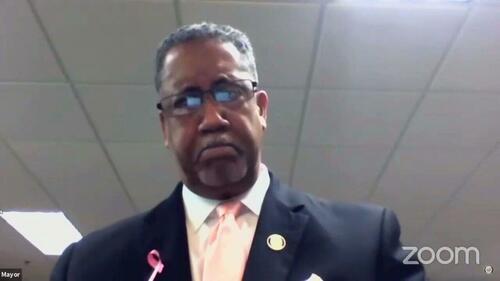 Former Stonecrest Mayor Jason Lary
Former Stonecrest Mayor Jason Lary


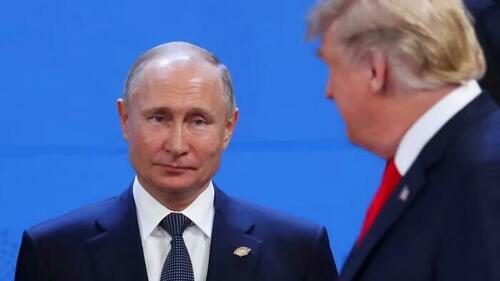 At the G20 summit in Buenos Aires in November 2019, via Reuters
At the G20 summit in Buenos Aires in November 2019, via Reuters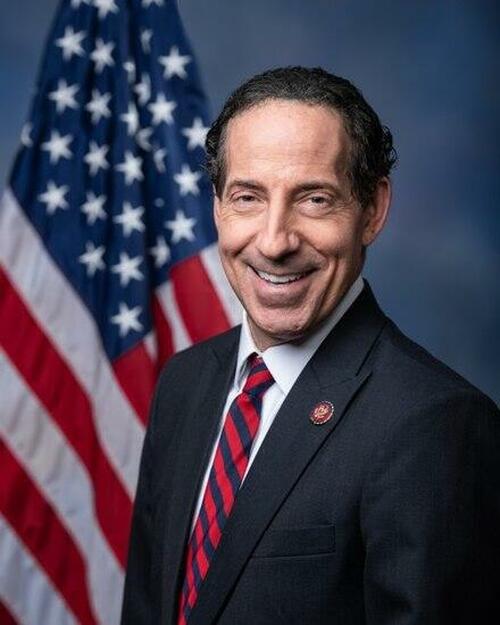
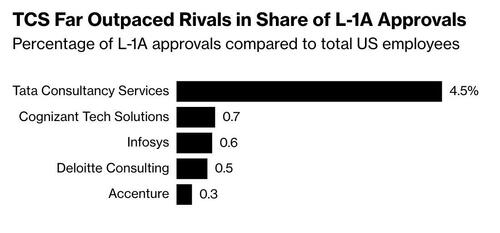

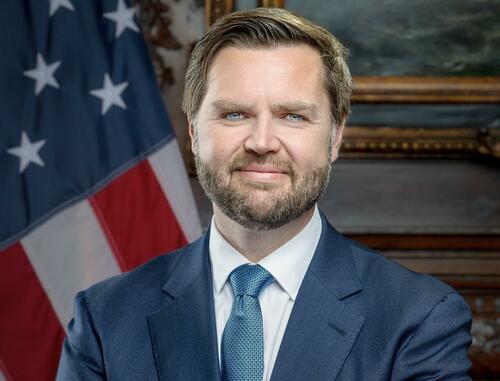
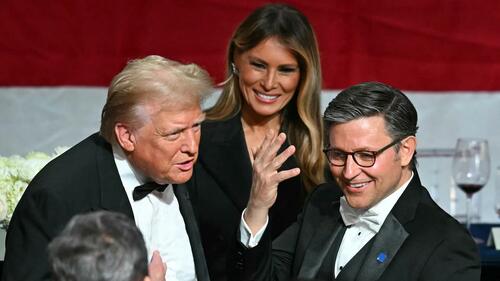
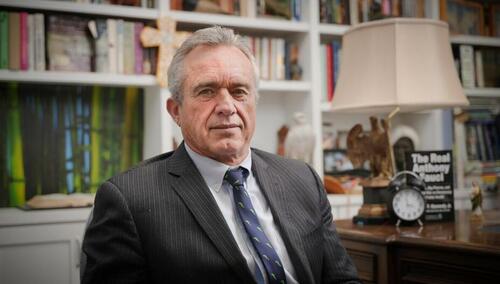


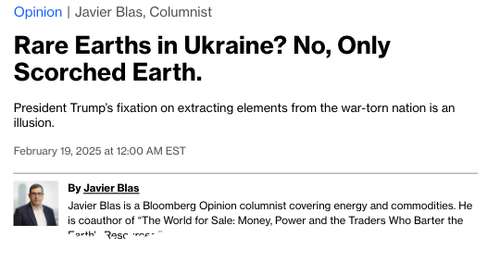


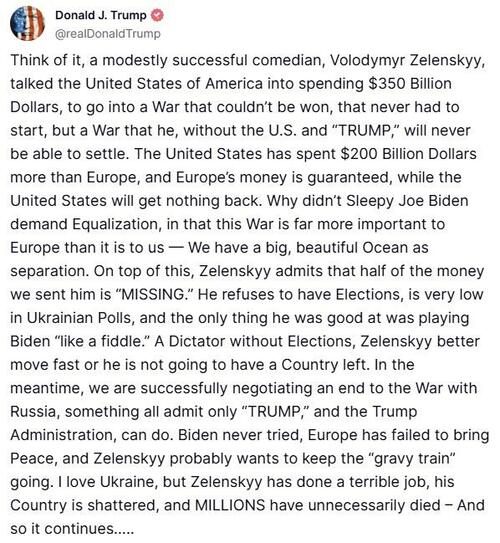
 Via AP
Via AP
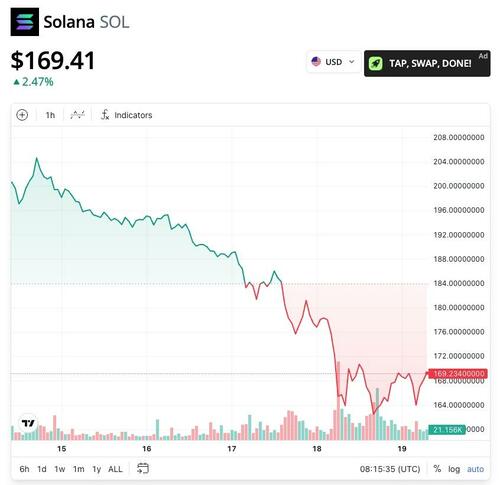
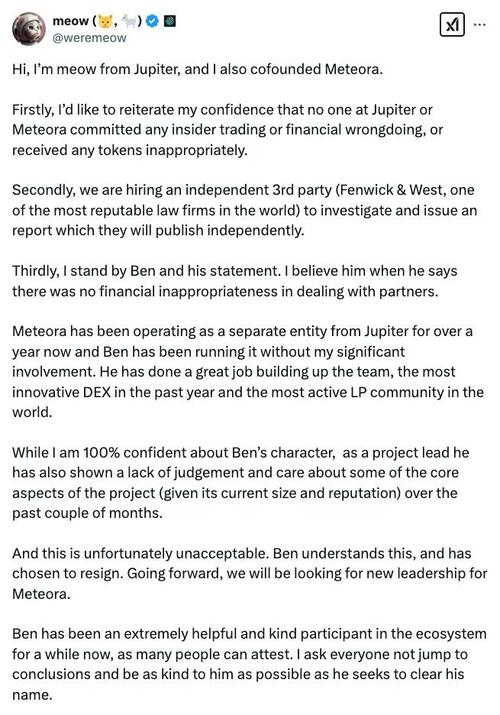
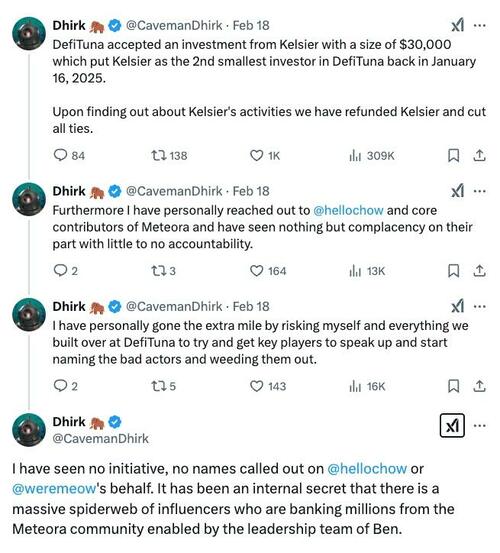
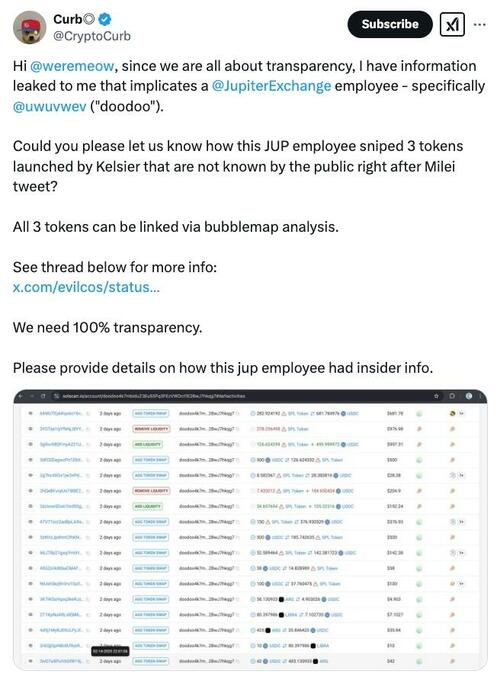
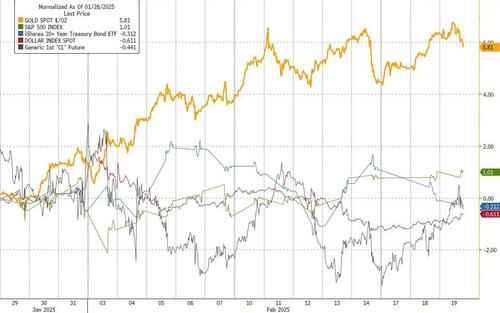
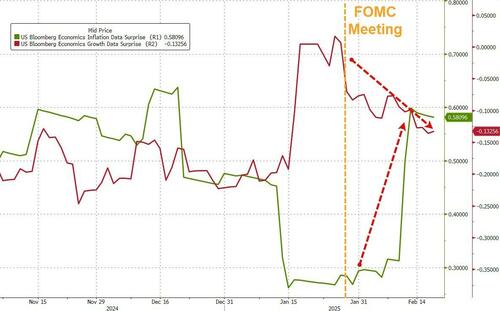
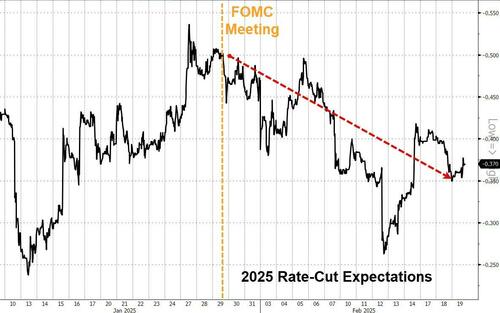
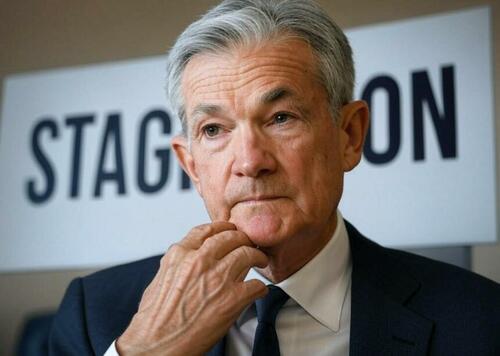
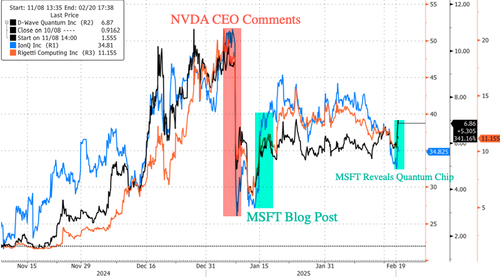
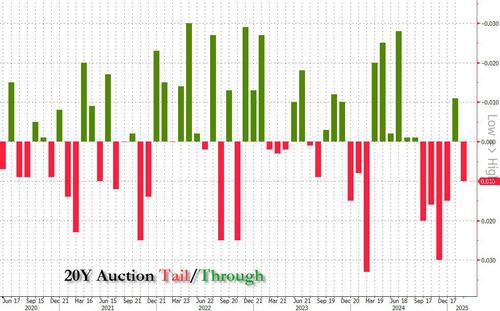

Recent comments